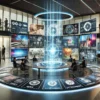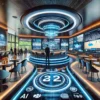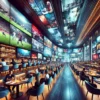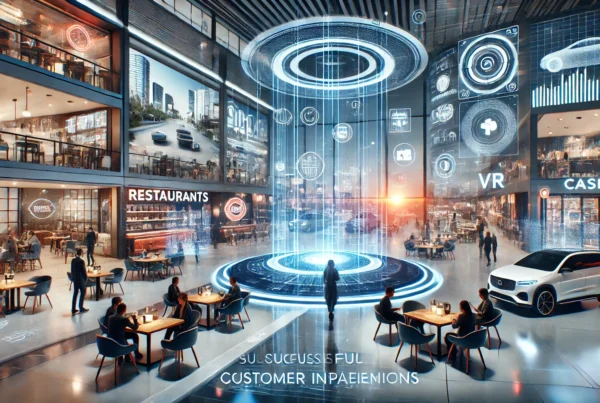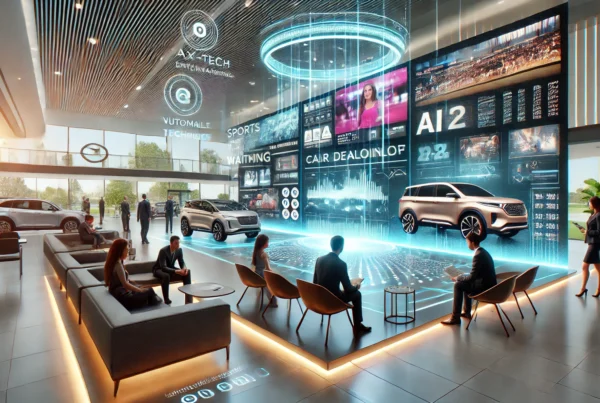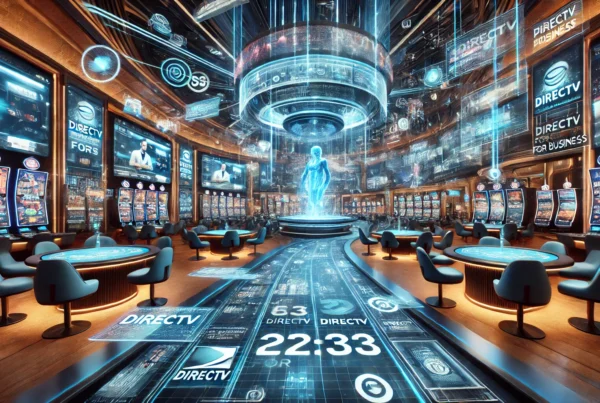In today’s competitive hospitality landscape, simply offering delicious food is no longer enough to draw in and retain customers. Restaurants must evolve into hubs of unforgettable experiences that captivate the senses and create lasting memories. This is especially true in the realms of restaurant entertainment where the ability to engage and entertain can significantly impact customer loyalty and brand reputation. Whether it’s through live performances, themed nights, or interactive events, mastering the art of entertainment is essential for any establishment looking to stand out.
Understanding how to craft these memorable experiences is crucial for business owners and decision-makers in the hospitality industry. The right entertainment strategy not only enhances the dining experience but also encourages social media sharing and word-of-mouth recommendations, which are powerful tools for attracting new patrons. As noted by TouchBistro, 42% of Millennials consider entertainment offerings a deciding factor when choosing where to dine, highlighting the importance of integrating engaging activities into your restaurant’s offerings.
At Sports Direct, we understand the significance of creating an atmosphere that keeps customers coming back. Our mission is to deliver innovative commercial video programming solutions that elevate the overall dining experience. By exploring the best practices in restaurant entertainment, this blog post will guide you through the essential strategies that can transform your venue into a destination of choice.
From exploring the benefits of live music nights to understanding the nuances of themed events, we’ll delve into practical tips and insights that can help you enhance your restaurant’s entertainment quotient. So, whether you’re a seasoned restaurateur or new to the industry, get ready to discover how you can create memorable experiences that resonate with your guests and drive business success. Stay tuned as we embark on this journey to redefine restaurant entertainment.
Understanding the Role of Entertainment in Restaurants
In the modern dining landscape, entertainment is no longer a mere add-on; it is a vital element that enriches the overall experience. A TouchBistro survey highlights that 42% of Millennials consider entertainment offerings when selecting a restaurant, underscoring its significance. This section explores why entertainment is crucial and how it can enhance customer satisfaction and loyalty.
Entertainment in restaurants serves multiple purposes. It not only attracts new customers but also retains existing ones by creating memorable experiences. By offering unique entertainment options, restaurants can differentiate themselves in a competitive market, ensuring they remain top of mind for diners. Moreover, entertainment can act as a catalyst for social media engagement, encouraging patrons to share their experiences online, thus amplifying the restaurant’s reach.
Impact on Customer Satisfaction
Entertainment plays a pivotal role in enhancing customer satisfaction. It transforms a simple meal into a memorable event, providing diners with more than just culinary delights. According to a study by the National Restaurant Association, customers are more likely to return to a restaurant that offers a unique experience, such as live music or interactive events. These experiences create a positive emotional response, leading to increased satisfaction and repeat visits.
Furthermore, entertainment can improve the overall ambiance of a restaurant, making it more inviting and enjoyable. Live performances, for example, can create a lively atmosphere that encourages guests to linger longer, potentially increasing their spend. By carefully curating entertainment options that align with their brand, restaurants can enhance the dining experience and foster a loyal customer base.
Influence on Customer Loyalty
Customer loyalty is significantly influenced by the quality of entertainment offered. When patrons associate a restaurant with enjoyable experiences, they are more likely to return and recommend it to others. This word-of-mouth marketing is invaluable, as it is often more trusted than traditional advertising.
Restaurants that consistently provide engaging entertainment can build a community of loyal customers who look forward to returning. This loyalty is not just based on the food but on the entire experience, which includes the entertainment provided. By investing in quality entertainment, restaurants can create a strong emotional connection with their guests, encouraging repeat business and long-term success.
Psychological Benefits of Entertainment
Entertainment in restaurants offers several psychological benefits that enhance the dining experience. It can reduce stress and create a sense of relaxation, allowing guests to enjoy their meal in a more comfortable setting. According to a study published in the Journal of Consumer Research, entertainment can elevate mood and increase the overall enjoyment of the dining experience.
Additionally, entertainment can stimulate positive emotions, making the dining experience more memorable. This emotional engagement is crucial for creating lasting impressions and encouraging patrons to return. By understanding the psychological impact of entertainment, restaurants can tailor their offerings to meet the needs and preferences of their customers, ensuring a satisfying and memorable experience.
Planning and Executing Entertainment Events
Creating memorable experiences through restaurant entertainment requires meticulous planning and execution. Understanding your audience, setting clear objectives, and managing logistics are crucial steps in organizing successful events. This section will guide you through the essential phases of planning and executing entertainment events, ensuring your restaurant stands out in the competitive hospitality industry.
To begin with, it’s important to conduct a thorough audience analysis. Knowing your audience’s preferences and expectations can significantly influence the type of entertainment you choose to offer. Whether your patrons prefer live music, themed nights, or interactive events, aligning your offerings with their interests is key to success. Additionally, setting clear objectives for each event, such as increasing foot traffic or enhancing brand loyalty, will help measure its success.
Understanding Your Audience
Audience analysis is the cornerstone of any successful entertainment event. By gathering data on customer demographics and preferences, restaurants can tailor their events to meet the needs of their patrons. Surveys, feedback forms, and social media analytics are effective tools for gaining insights into what your audience enjoys. For instance, if your restaurant attracts a younger crowd, consider hosting events like live music or trivia nights that appeal to this demographic.
Moreover, understanding your audience allows for more personalized experiences, which can lead to increased customer satisfaction and loyalty. By offering entertainment that resonates with your patrons, you create a unique value proposition that sets your restaurant apart from competitors.
Setting Clear Objectives
Defining clear objectives is essential for the success of any entertainment event. Objectives could range from boosting weekday traffic to promoting a new menu item. Having a clear goal in mind helps in planning and executing the event effectively. For example, if the objective is to increase social media engagement, consider events that encourage guests to share their experiences online.
Once objectives are set, it becomes easier to evaluate the event’s success. Metrics such as increased footfall, social media mentions, and customer feedback can provide valuable insights into the event’s impact. This data can then be used to refine future events and enhance their effectiveness.
Budgeting and Logistics
Budgeting is a critical component of event planning. It involves estimating costs for entertainment, marketing, and additional staff. Collaborating with local artists or businesses can help manage costs while also enhancing the event’s appeal. For instance, partnering with a local brewery for a beer-tasting night can be mutually beneficial and cost-effective.
Logistics, including scheduling, staffing, and equipment needs, must also be meticulously planned. Ensuring that all logistical elements align with the event’s objectives will contribute to a seamless execution. By addressing these logistical aspects, restaurants can deliver a smooth and enjoyable experience for their guests.
Enhancing Customer Experience Through Entertainment
In the competitive world of hospitality, creating memorable experiences is crucial for attracting and retaining customers. Entertainment plays a pivotal role in enhancing the overall dining experience by transforming a simple meal into an unforgettable event. This section explores how integrating entertainment seamlessly into the dining experience can maximize its impact.
Entertainment is not just about the event itself but also about how it enhances the ambiance, engages the staff, and interacts with customers. By focusing on these elements, restaurants can create a holistic experience that resonates with guests long after they’ve left the venue.
Importance of Ambiance
The ambiance of a restaurant sets the tone for the entire dining experience. By incorporating entertainment that complements the decor and theme, restaurants can create an inviting atmosphere that captivates the senses. For instance, live jazz music can enhance a cozy, intimate setting, while a lively DJ can energize a vibrant, bustling space.
Restaurants like Tokyo’s Sagaya, which partners with digital arts agency teamLab, create immersive dining experiences by integrating visual elements that unfold onto the table and surrounding space. This not only enhances the ambiance but also creates a unique and memorable experience for diners.
Staff Training and Customer Interaction
Well-trained staff are essential for delivering exceptional service that enhances the entertainment experience. By developing skills in emotional intelligence and hospitality, staff can anticipate guests’ needs and provide personalized service that leaves a lasting impression. For example, staff at renowned establishments like The Ritz-Carlton are trained to offer “ninja service,” where they fulfill customer needs seamlessly without interrupting the flow of their experience.
Encouraging staff to engage with customers during entertainment events, such as hosting trivia nights or themed dinners, can foster a sense of community and make the experience more interactive and enjoyable. This interaction not only enhances the dining experience but also builds a connection with guests, encouraging repeat visits.
Examples of Successful Integration
Several restaurants have successfully integrated entertainment into their dining experience to create memorable events. For instance, Snakes & Lattes in Toronto combines a library of board games with food and beverages, offering guests a unique entertainment option that encourages them to linger longer.
Similarly, the Crocodile Lounge in New York City hosts weekly trivia events and bingo nights, attracting a diverse crowd and creating a lively atmosphere. By offering a variety of entertainment options, these establishments cater to different customer preferences, ensuring a memorable experience for all.
Bringing It All Together for Unforgettable Dining
Incorporating entertainment into your restaurant’s offerings is a powerful strategy to create memorable experiences that captivate your guests and encourage them to return. By integrating entertainment thoughtfully, restaurants can enhance the dining experience, boost customer satisfaction, and foster loyalty. Throughout this blog post, we’ve explored best practices and insights into planning and executing entertainment events that align with your brand and audience.
From understanding your audience to setting clear objectives, the success of entertainment events lies in meticulous planning and execution. Ensuring that your entertainment offerings resonate with your patrons is key. This means not only choosing the right type of entertainment but also creating an ambiance that complements it. Whether it’s live music, themed nights, or interactive experiences, the goal is to offer something unique that leaves a lasting impression.
- Understand your audience: Gather data on customer preferences to tailor events that resonate with them.
- Set clear objectives: Define what you aim to achieve with each event, such as increased foot traffic or enhanced brand loyalty.
- Focus on ambiance: Create an inviting atmosphere that aligns with your entertainment offerings.
- Train staff: Ensure your team is well-equipped to enhance the entertainment experience through exceptional service.
As you implement these strategies, remember that the ultimate goal is to create an experience that your guests will share and talk about. Encourage them to post on social media by providing shareable moments, and consider running contests or promotions that incentivize online engagement. By doing so, you not only enhance the dining experience but also expand your reach and attract new customers.
To continue exploring strategies for creating memorable dining experiences, visit our website Sports Direct. Discover how our solutions can elevate your restaurant’s entertainment offerings and drive business success. We invite you to share your thoughts and experiences in the comments below, and stay connected for more insights and updates.



